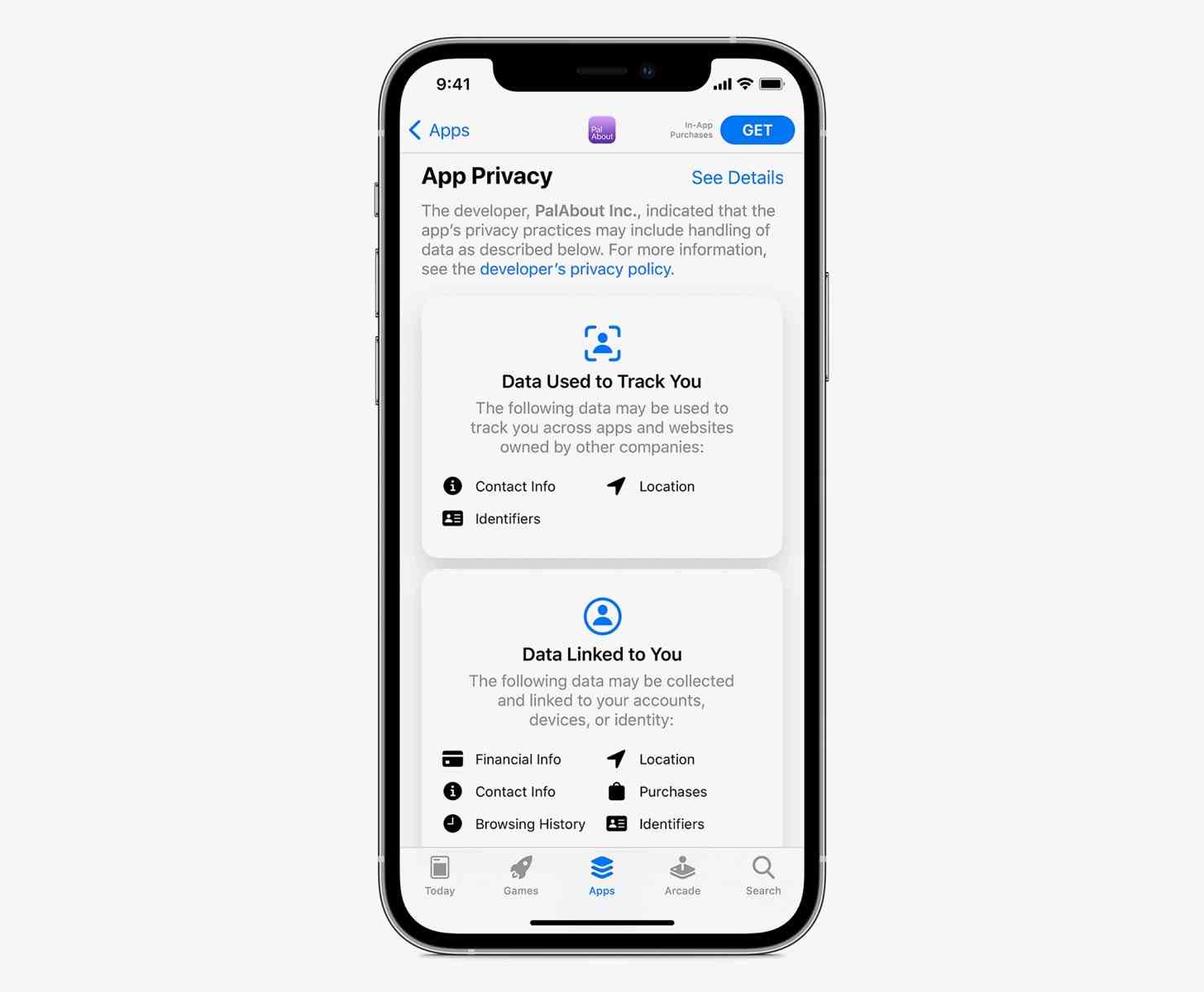
Today's update to iOS 14.3 brings with it lots of new features, including Apple Fitness+ and support for the new AirPods Max headphones. It also adds a new feature meant to help user privacy.
Today Apple is launching App Store privacy labels that outline what information an app gathers about you and how it tracks you. These labels are required for any app listed in the App Store and are generated based on the privacy data that the developers submit. Apple says that its own applications must abide by these privacy label rules, too.
As noted by Fast Company, these App Store privacy labels are divided into three categories. "Data used to track you" links your user otr device data acquired from other apps, sites, or ad profiles, and this will also tell you if an app shares your info with data brokers.
Next is "Data linked to you", which includes things like your name, age, and gender. This is info that you tell an app about yourself and can also include details like your birthday or work history if you've shared that info with the app.
The third and final category is "Data not linked to you," which includes things like the diagnostic data that an app gathers.
In addition to appearing in iPhone apps, Apple requires these privacy labels for apps on the iPad and Apple Watch as well as the Mac and Apple TV platforms.
Many people feel that their privacy is important, especially when using smartphone apps that can gather sensitive info about you and potentially share it with third-parties. It can be difficult to find the privacy policy of some apps, though, and even if you can locate it, the language used might be difficult to understand. Apple's privacy labels are meant to solve both problems, putting an app's privacy policy right there on its page in the App Store and succinctly laying out what data about you that it gathers.